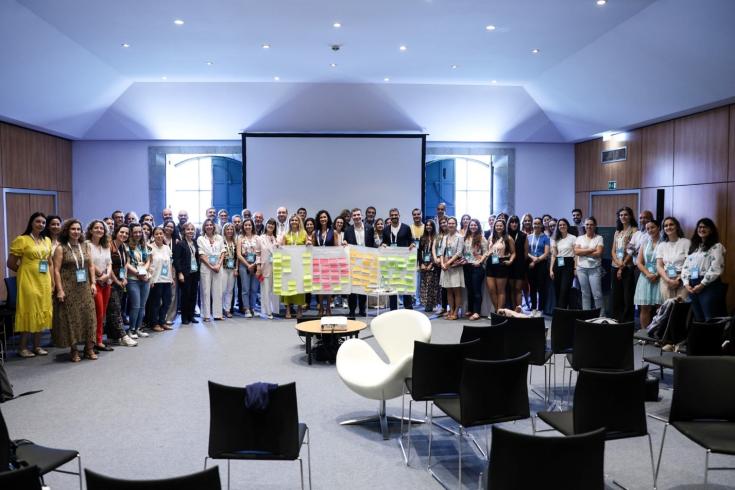ANI in Encontro Ciência 2024: +Ciência Para Uma Só Saúde

The focus was on the role of Science at the interface with health and well-being, addressing topics such as Digital Health, Artificial Intelligence, and the promotion of Health Education, among others. ANI organised a series of sessions that took place on 4 and 5 July.
On 4 July, the opening session was led by António Grilo, president of ANI. Then, it was time to start the first session, 'World Café: Let's Talk About Horizon Europe', moderated by ANI, among others. The theme emerged from the critical phase that the European Framework Programme for Research and Innovation, Horizon Europe is going through in terms of planning actions for the last three years of funding (2025-27). It also stemmed from a desire to anticipate potential futures that might be included in the next Framework Programme for the period 2028-2034 (known as FP10).
As part of the national research and innovation community, ANI plays a central role in this process, as it can actively participate in defining funding models and their instruments. In an open session, ANI was invited to explore and discuss the current challenges and to envision a future aimed at strengthening the national science and innovation system, as well as enhancing Portugal's presence in the Framework Programme.
The programming of Encontro Ciência 2024 featured both plenary and thematic sessions. On 4 July, ANI participated in the session 'Soil - Pillar of One Health - Portuguese participation in the Soil Mission'. In Portugal, members of the quadruple helix (academia, primary sector and industry, administration and policy-makers, and society) have been meeting in competitive consortia involved in research projects to establish living laboratories and demonstration sites, as well as to pursue other objectives of the Soil Mission. This session was therefore aimed at presenting projects within the scope of the Soil Mission, coordinated by or involving Portuguese participation, followed by a debate that explored networking opportunities.
On 5 July, the morning session was entitled 'Mission Interface: from Science to Market', which comprised a state of play, presented by ANI. The theme aimed to highlight the increasingly important role of interface institutions in driving knowledge-based innovation in order to create value for the economy and society at large.
The session was complemented by two roundtable discussions on 'The Role of TICs and CoLABs in the Innovation Cycle' and 'Internationalisation: from Knowledge Chains to Market', moderated by ANI. In Portugal, CoLABs - Collaborative Laboratories -, and TCIs - Technology and Innovation Centres operate from the generation of knowledge to the creation of products and services, through technology transfer and collaborative dynamics. They involve multiple stakeholders from the National Innovation System, ranging from academia to businesses.
This edition of ANI@Ciência focuses on the role that these interface institutions play in the innovation cycle, from sharing best practices to finding answers to the challenges facing the Portuguese economy and society, particularly in the contexts of digital transition and green transition.
